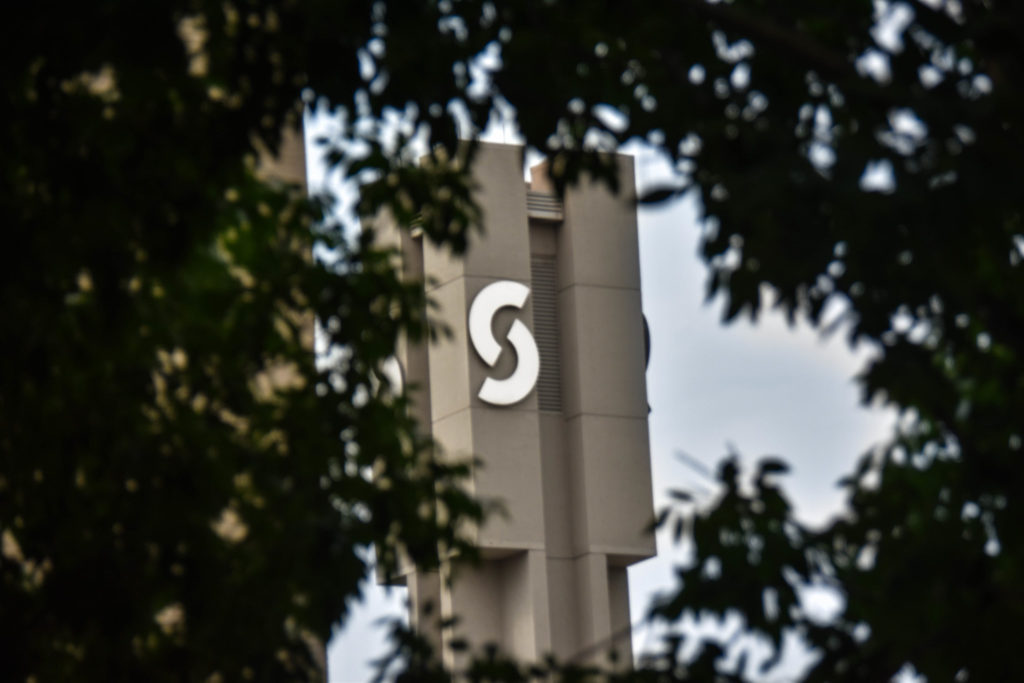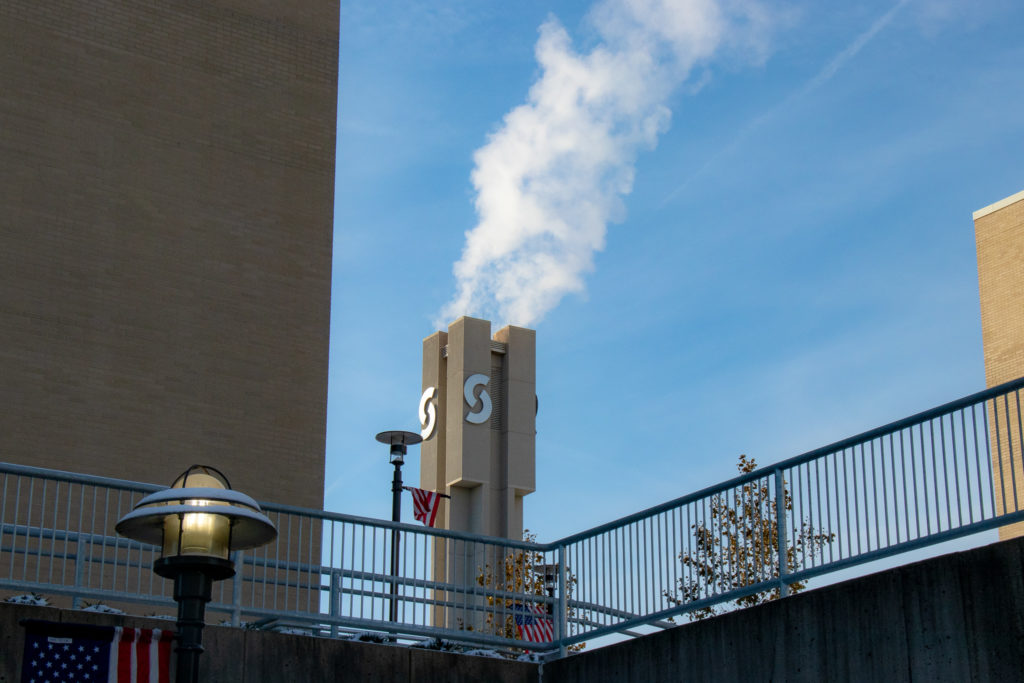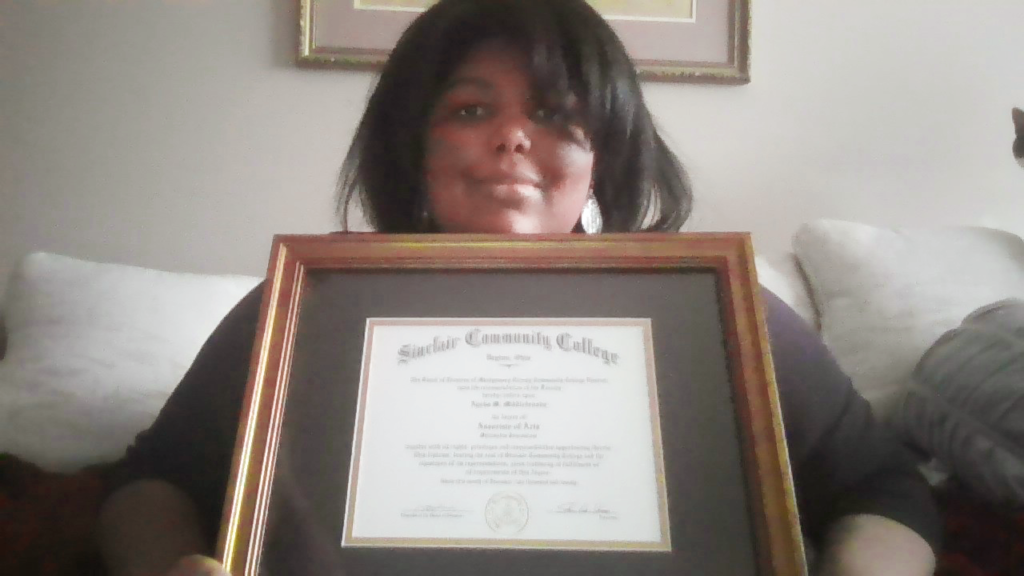May 9 marks the day my time as a Sinclair student officially comes to an end. I first enrolled in Dayton’s downtown campus in the summer of 2018 with the intention of majoring in multimedia journalism.
I always loved to write. Primarily in the manner of telling stories about made-up characters who lived in made-up worlds. During my childhood, my first dream was to become an author. One who, ideally, illustrated her own books. Yet, growing older I would observe how the realities that came with being an author were actually not quite glamorous. That, and finishing a novel felt like an impossible task.
Therefore as an adult, it came to my attention that I needed a sturdy foundation to rely on. Journalism seemed to be the perfect fit because whether it be for something fictional or a random blog post for the internet, my love for writing persisted.
Previously, I had taken a journalism class in high school for elective purposes, and even then I found my assignments were incredibly easy to complete. Furthermore, it continued to nurture my love for writing as well as storytelling, to an extent.
Yet, with all this being said, it would not be until 2019 when I found employment as a campus reporter.
Prior to working at The Clarion – or even taking journalism classes at Sinclair, I was simply a college student trying to finish my assignments to the best of my abilities. I would encounter wonderful professors from who I would constantly gain new knowledge and insight from and, over the duration of a semester, I would grow acquainted with my classmates.
My academic accomplishments were incredible. I made the Dean’s List four times in a row, however, I never felt as though I was a part of the college’s greater community.

For the most part, I was on campus to attend class and go home. Afterwards, once each semester was completed, there was a slim chance of me encountering my professors again, let alone those classmates I had built a semi-friendship with. My campus life was silently drifting from one point to the next in a repeated cycle.
Now, with this being said, I was not ignorant of The Clarion’s existence. Once, in Building 2 as I waited for Interpersonal Communication to begin, I would read through a slightly older paper that headlined the play, “Be More Chill.” As someone who had recently viewed Blair Hall’s production of the play, I was curious as to see whatever the college had to potentially say.
A separate occasion in which The Clarion would catch my eye is when the beloved Nintendo mascot, Mario, would have a spot on the front page with the article: “Claude’s Column: The Story of Super Mario Brothers 2.”
Still, my awareness about the inner workings of Sinclair’s student newspaper would remain non-existent. None of my professors ever mentioned or spoke of the paper, but this would change in my third semester, during my Mass Media Communication class with Nadine Cichy. As she spent her lecture discussing the history of the press, she suddenly told us to raise our hands if we had any affiliation with The Clarion. Little to no one did so.
Cichy would then say something I could not take for granted – it was important for journalism majors to work at The Clarion because otherwise, how would we know this was a career we actually wanted to do for a living?
Yes, I was familiar with journalism through a singular high school class, but that was for a grade. Not pay. I wondered if I would feel differently having to report day in and day out. To further grill into us, Cichy stated she would ask us if we sought out Clarion employment in the following weeks to come, which was even more of an incentive for me to personally seek the office out once class was dismissed.
Ultimately, the application process would take some time to be completed, but I would be taken on as a reporter in late October of 2019. For new reporters, it was a custom for them to do a “Tartan Spotlight.” An article in which they reach out to a faculty member and write about who they are, what they do, and how they got to Sinclair. For this, I chose my then-professor of African American Psychology, Chuckeia Folley.
The decision to interview her came naturally, for whenever I told people on campus I was taking African American Psychology, their initial question would be if Taylor Curtis was the instructor. Personally, it seemed to me no one had really heard of Folley and therefore, a Tartan Spotlight could have those around campus become better aware of her face and name.
I can distinctly recall how in the following week, I went to the nearest newsstand to see if my interview was published. My name was actually cut off in an error, but nonetheless eager I hurried to African-American Psychology to tell Folley she was featured in the paper.
To my joy, a copy of the paper was already on her desk. One which she would later read and thank me for by the end of class. It’s one of those fulfilling moments you don’t forget.

Amazingly, I would transition at a fast pace at The Clarion. Before I could blink, the then-editors – Henry Wolski, Richard Foltz and Samuel Claude, felt I would be effective in holding the position of associate editor. Then, with Claude leaving I would be promoted to managing editor.
I was now in the office weekly with the three of them, gathering knowledge of how to put a paper together, as well as getting to know them as individuals. Around this time, it was planned I would curate online content for the website during the summer and later I would become the executive editor upon Foltz’s graduation. Little did we know, the COVID-19 pandemic loomed over the horizon.
During those short-lived days, when the flu was thought to have been more deadly than COVID-19, I had distinct plans for what I would do for The Clarion as executive editor.
I had fantasies of how I would decorate the space around Wolski’s computer – which would become my desk space. I thought of how I would shamelessly promote The Clarion to my peers and professors in the upcoming semesters. I anticipated covering so many topics and interviewing as many people as I possibly could.
However, I never got to accomplish what I wanted for The Clarion. As cases of COVID-19 began to continuously emerge in America, Sinclair would be one of many Ohio colleges that closed its campus. From this point on, everyone was to be working from home.
Needless to say, I became the executive editor at the most undesirable, modern time in American history. Furthermore, I had to now lead The Clarion into a digital age.
Wolski already taught me the process that came with uploading articles, but digital distribution didn’t wholly revolve around articles being uploaded consistently. We needed to figure out what would be our best method to communicate with our staff. How many times a day would we upload articles? How to enhance social media to better reach out to our audience as well as how we would handle advertising from this point.
Staff immediately dwindled, so we reached a point where no one possessed just one role. But luckily, Foltz remained at my side as an associate editor through it all.
During these days, there was still an inkling of hope we would return to the office in the distant future. Yet, as cases continuously grew at rapid rates and Gov. DeWine established more precautions to keep civilians safe, over time we all knew there was no way we would print in the near future.

Things were honestly difficult for me. My success in focusing on school assignments drastically declined, as learning from home is not the same as learning in a classroom for me. I was disturbed by the ever-climbing global death toll constantly being shown in the news and frequently I wondered if I, or my loved ones, would become another statistic and, naturally, I had family issues with relatives who deeply depended on me for financial matters, as well as their personal needs.
With this occurring for me during the exact same time I was running The Clarion, I constantly felt as though I was being pulled in various directions having to fulfill my overlapping, constant roles. But worse than that, because I was not in the office actively working: there were countless days where I wondered if I was doing enough or if I was even an adequate leader. The fact I knew things would have been far different if I was in person only made me more depressed.
However, despite the fact I did not do what I wanted, I did what I could. Under my leadership, The Clarion received a total of thirteen awards from Ohio News Media Association (ONMA), a feat that had previously never occurred before. If I cannot think of a single positive thing that happened to me from 2020 to mid-2021, then this is something I can look back on and take pride in.
My experience at The Clarion was one that was definitely unique. As I move forward and think back to my time in Sinclair, I will forever remember Chuckeia Folley telling me her life story just as I will remember how I had the chance to attend the Mobile Jim Crow Museum speaking with the curator Khalid el-Hakim or, how I got to interview Sinclair librarians who spoke about their annual Valentine’s Event with enormous thrill and excitement.
But more than that, I will forever appreciate the friends I managed to make. I have enjoyed getting to know all of you, but especially Richard Foltz, Jeri Hensley and Taylor Pendleton, who I have spent countless hours working closely with and also confiding in as we watched this crazy, uncertain time unfold together.
Stay positive in these times and, even if it’s hard to see any kind of light, keep moving forward.

Ayzha Middlebrooks
Executive Editor

